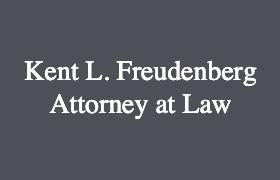Rush Construction Lawyer, Colorado
Sponsored Law Firm
-
 x
x

Click For More Info:
-
Kent L. Freudenberg, Attorney at Law
115 East Las Animas Street Colorado Springs, CO 80903» view mapDivorce & Family Law Competent Legal Representation
Let the law office of Kent L. Freudenberg, Attorney at Law handle all your Divorce & Family Law needs today!
800-881-7201
Includes: Construction Contracts, Construction Liens, Housing & Construction Defects
Not enough matches for Rush Construction lawyer.
Below are all Rush Real Estate lawyers.
Scott A. Midgley
Commercial Real Estate, Real Estate, Business, Bankruptcy & Debt
Status: In Good Standing Licensed: 43 Years
Scott A Midgley
Commercial Real Estate, Real Estate, Business, Bankruptcy & Debt
Status: In Good Standing Licensed: 43 Years
Jeffrey Chilton Shaw
Commercial Real Estate, Trusts, Business, Medical Malpractice
Status: In Good Standing Licensed: 27 Years
William David Lytle
Commercial Real Estate, Real Estate, Electronic Commerce, Business
Status: In Good Standing Licensed: 51 Years
James S. Oliver
Residential Real Estate, Commercial Real Estate, Land Use & Zoning, Construction
Status: In Good Standing Licensed: 33 Years
FREE CONSULTATION
CONTACTMark A Ohlsen
Estate, Lawsuit & Dispute, Real Estate, Wills & Probate
Status: In Good Standing Licensed: 38 Years
William David Lytle
Commercial Real Estate, Electronic Commerce, Immigration, Business
Status: In Good Standing Licensed: 51 Years
R. J. Patrick O'Callaghan
Real Estate, Trusts, Wills & Probate, Commercial Real Estate
Status: In Good Standing Licensed: 73 Years
 Kent Freudenberg Colorado Springs, CO
Kent Freudenberg Colorado Springs, CO AboutKent L. Freudenberg, Attorney at Law
AboutKent L. Freudenberg, Attorney at Law
